Agora is professional reading journal for History teachers. Each issue provides perspectives on a particular theme, from curriculum-focused content to pedagogical practice, along with teaching strategies, classroom activities and educational resources addressing the broader History curriculum.
Reflection
Editorial
The Role of Piracy in the British Empire • The British Empire was established on the back of pirates who enriched the Crown with Spanish treasure that funded the expansion of the Royal Navy.
A French Australia: What Were the Chances? • The French were exploring Australia’s coastline at the same time as the British, but a number of obstacles and different priorities saw the British establish Antipodean colonies.
The Indigenous Man Who 'Volunteered' to Sail with Matthew Flinders • Bungaree does not appear in official records, but Flinders' journal reveals he was essential to the successful circumnavigation of Australia.
The Antipodean Legacies of Atlantic Slavery • Compensation awarded to British slave-owners under the Slavery Abolition Act 1833 enabled them to redirect their Atlantic assets and practices to Australia’s burgeoning settler colonies.
Misrepresentation of Tasmania’s Indigenous People across Time • An extinction narrative created by nineteenth century colonists in Tasmania was maintained into the 1970s through media narratives of Truganini as the last of Tasmania’s Aboriginal people.
Colonisation and the Australian Environment, 1788–1900 • At least nine ideas need to be considered when understanding the impact of colonisation on Australia's environment.
Coronial Investigations as Primary Sources in Colonial History • Coronial investigations into maternal deaths are a window into the private realm of childbirth in colonial Australia, a period in which regulation did not apply to the work or the people who performed it. These records also have a broader application for studying aspects of colonial life.
Gender and Power in Colonial Encounters between European Company Men and Asian Elites • Company men sought to extend their influence in India and the Dutch East Indies by establishing families with elite local women.
The Colonisation and Unification of Predynastic Egypt • Over a period of 300 years, southern kings in the Nile Valley gradually took over Lower Egypt so they could rule the whole of Egypt.
Imperial Power Dialogues in Melbourne’s Streets • The location of significant public facilities in Melbourne’s ‘Hoddle Grid’ deliberately imposes representations of colonial power from the Ancient Roman empire onto the lands of the Kulin Nations.
Teaching Difficult Histories: Approaches for the Classroom • The prospect of teaching contested colonial histories can be daunting, but a balance of teaching strategies and awareness of potential pitfalls can lead to some of the most stimulating moments in the classroom.
From Colony to Nation with the National Gallery of Victoria • The National Gallery of Victoria has developed learning resources and programs that connect key historical events in Australian history with artworks, artefacts and cultural material.
Exploring Historical Thinking Concepts with a Classroom Thanksgiving Feast • A Thanksgiving feast in the classroom is a memorable way for students to immerse themselves in the colonisation of North America by the Pilgrims.
The Naming of the Yarra River as an Act of Colonialism • The naming of features within the Australian landscape is an act of colonial possession that has silenced and ignored Indigenous knowledge and presence within the Australian landscape.
Kritikos • Reviews
Agora
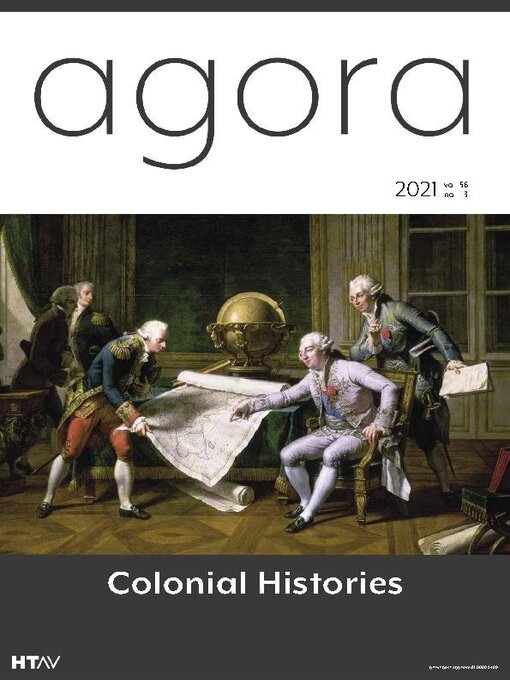
 Vol 59 No 1 2024
Vol 59 No 1 2024
 Vol. 58 no. 3 2023
Vol. 58 no. 3 2023
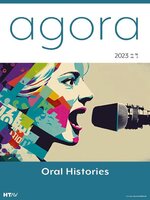 Vol. 58 no. 2 2023
Vol. 58 no. 2 2023
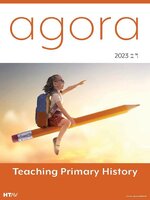 Vol. 58 no. 1 2023
Vol. 58 no. 1 2023
 Vol. 57 no. 3 2022
Vol. 57 no. 3 2022
 Vol. 57 no. 2 2022
Vol. 57 no. 2 2022
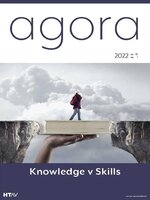 Vol. 57 no. 1 2022
Vol. 57 no. 1 2022
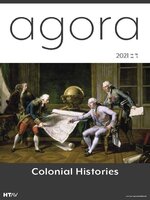 Vol. 56 no. 3 2021
Vol. 56 no. 3 2021
 Vol. 56 no. 2 2021
Vol. 56 no. 2 2021
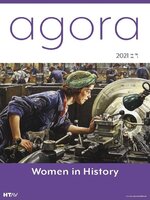 Vol. 56 no. 1 2021
Vol. 56 no. 1 2021
